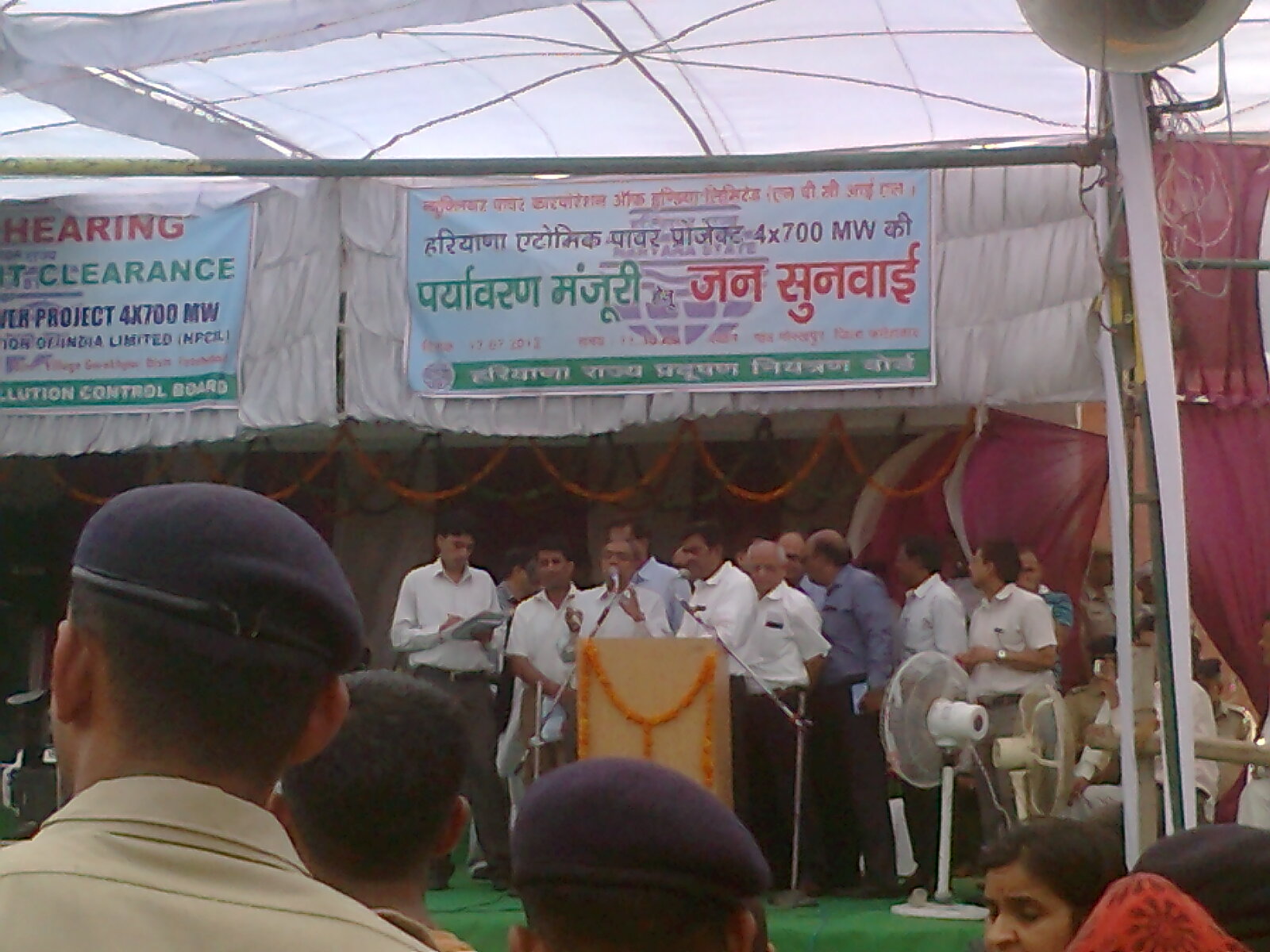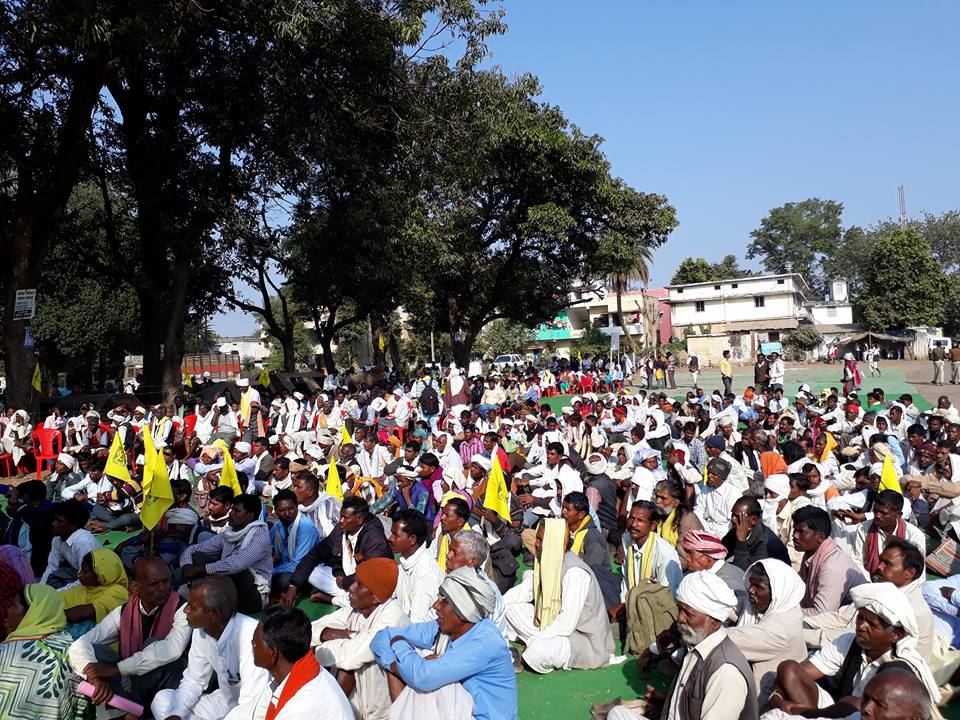Ecological democracy and public participation: India's new environmental clearance regime and the case for building a new commons.
 |
||
 |
Sonali Huria | |
 |
||
 |
US$5,000 |
Research Background Final Report (abstract) Others

Community protest at EIA hearing for Gorakhpur Nuclear
Power Station.

Community protest at EIA hearing for Chutka Nuclear
Power Plant.
Research Background
The existing environmental clearance regime in India, initiated in 1994 through the mechanism of the Environmental Impact Assessment (EIA) process, came about as a result of protracted civil activism by concerned citizens groups, and landmark legal interventions. Over the years however, environmental clearance norms have been steadily diluted to promote 'ease of
business'-- the 1994 EIA notification was replaced by a much weaker 2006 EIA notification after nearly 13 amendments in the intervening period, which has now been replaced by a drastically
weakened EIA 2020. The EIA 2020 notification has led to a wide-ranging public debate on what this new regime implies for India's ecological future, including (a) democratic spaces for public
consultation/engagement, (b) scope of the EIA regime itself, (c) consequences for potential violators, and (d) the principles of environmental justice and jurisprudence that have been consistently re-affirmed by the Supreme Court of India.
Local communities struggling against large-scale industrial projects and attempting to making their voices count in the green clearance process, as well as urban/rural activist solidarity
groups supporting them, are often unable to make their concerns audible to larger national audiences or even connect effectively with each other. Often differences over the pathways of local
movements or larger political and ideological stakes, and visions regarding the directions such movements ought to take, lead to such disconnects. However, there is little disagreement among
movements that green clearance processes must place centre-stage, the concerns of communities whose collective resources, health, traditional livelihoods, knowledge systems, and ecological
intimacies are potentially affected by large-scale projects. Therefore, conversations focused specifically on the EIA process, documentation of the changes that have been effected in the green
clearance regime in concert with an anomalous criminalization of ecological dissent, and how solidarities and a new commons may be built to reclaim people's voices in these processes, have
acquired great salience in the given circumstances.
This project thus, proposes to (a) create an online resource space that will document various developments surrounding India's EIA 2020 and the green clearance regime more historically, and also (b) provide space for the various (and often disconnected) peoples' struggles against the EIA 2020, many of which have limited online access/presence. The project seeks to
bridge this gap by providing these communities an online interactive platform to document their struggles and connect with each other. Moreover, this project also seeks to provide India’s urban
audiences information regarding environmental struggles and EIA processes across the country, which receive only peripheral coverage in mainstream news media.
[Sep. 2020]
Final Report (abstract)
Others
